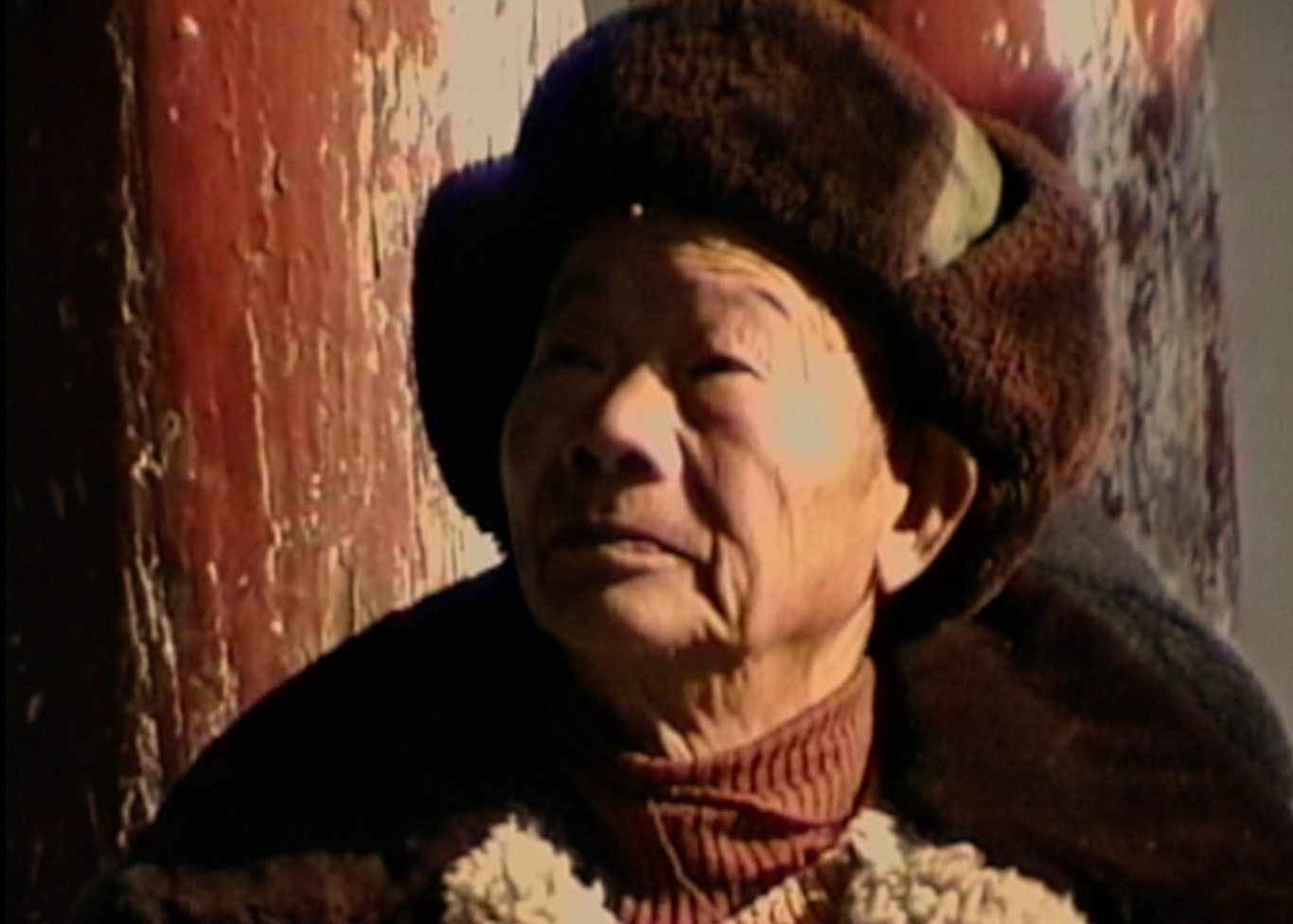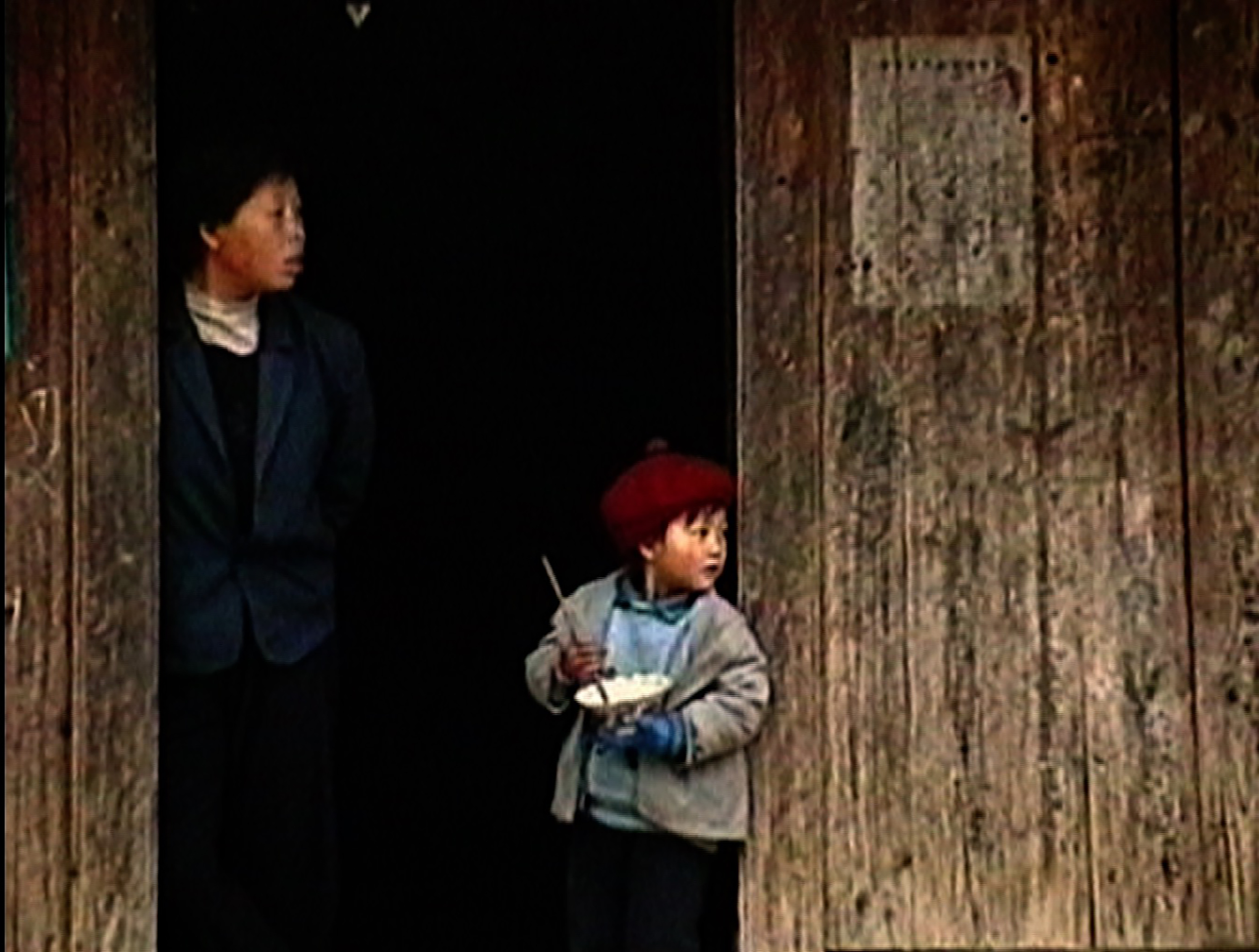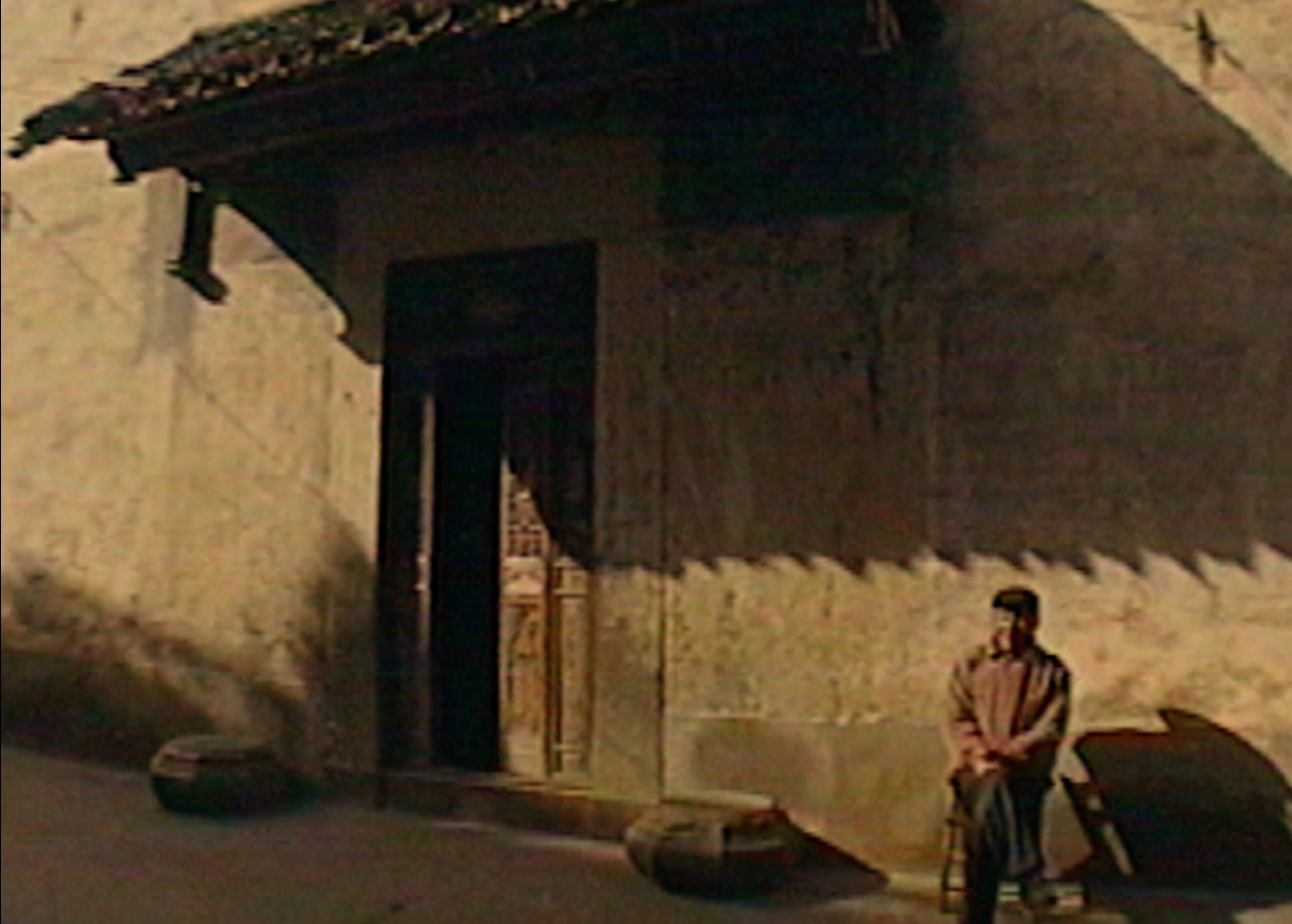What About China?
China | 2022 | 135 minutes | Color | DVD | Chinese | Subtitled | Order No. W221298 |
Offering a journey into the wealth of China’s traditional architecture while exploring the hinterlands of self and other in their encounter, the film addresses the process of "harmonising" rural China, due to the country's Great Uprooting. It seeks to engage the viewer further by asking: What exactly is disappearing? And how?
SYNOPSIS
In the film, "harmony" involves not only the way music fundamentally defines reality, or the way space takes shape and structures daily life, but also the dynamic agents in the ongoing process of safeguarding the "roundness" of a world of social equity. Offering a journey into the wealth of China’s traditional architecture while exploring the hinterlands of self and other in their encounter, the film addresses the process of "harmonising" rural China, due to the country's Great Uprooting. It seeks to engage the viewer further by asking: What exactly is disappearing? And how?
The viewer is invited to fare between ancient wisdom, avant-garde experiment and popular folk acumen as the film taps on the rich realm of affect, featuring a multiplicity of voices and narratives embedded in a rhythmic conversation between the still image and the moving image. Like the ancient painter who dreams of windows, the film and video maker devises mobile windows with passageways where the real and the imaginary converge on the light canvas.
PRESS
"Prominent feminist film scholar Trinh presents a hugely imaginative cultural critique of China that resists the idea of a single historical narrative, instead evoking the plurality of indigenous perspectives."
Trinh’s reflexivity can be subtly felt throughout the film, a gentle reminder that history is a construct, one in which she is taking part. Her zoomed-in camera roves slowly through Guo Xi’s paintings, bringing the viewer deliberately close, before zooming out to present the full work, the bigger picture.
Trinh T. Minh-ha’s admirers, myself included, would do well to learn from her filmmaking methods of speaking without objectifying, and of coming close to a subject without seizing or claiming it.
"Presents a formalist experiment in the medium of film, taking architecture as subject matter and, through her eyes, inviting the viewer to see it anew."
"Trinh T. Minh-ha’s admirers, myself included, would do well to learn from her filmmaking methods of speaking without objectifying, and of coming close to a subject without seizing or claiming it."
"A massive, complex web of a video essay."
SCREENING HIGHLIGHTS AND AWARDS
- Prix Bartók, Jean Rouch Film Festival
- New Vision Award, CPH:DOX
- Golden Gate Persistence of Vision Award, San Francisco International Film Festival
- Special Commendation, BFI London Film Festival
- Biennial of the Whitney Museum of Art
- Haus der Kulturen der Welt, Berlin
- Barbican Theater, London
- DMZ Documentary Film Festival, South Korea
- Royal Academy of Arts, Copenhagen
- Kunstnernes Hus Cinema, Oslo
- Montreal International Documentary Festival, Montreal
- Württembergische Kunstverein
- Algarve International Festival of Film and Literature
- Rockbound Art Museum, Shanghai
- Courtisane Film Festival
ABOUT FILMMAKER(S)
TRINH T. MINH-HA
Born in Vietnam, Trinh T. Minh-ha is a filmmaker, writer and music composer. Her works include:
Films::
WHAT ABOUT CHINA? (135 mins digital film, 2021)
FORGETTING VIETNAM (90 mins digital film, 2015)
NIGHT PASSAGE (98mins digital narrative film, 2004)
THE FOURTH DIMENSION (Japan, 87 mins digital film, 2001)
A TALE OF LOVE (108 mins 35mm narrative, 1995)
SHOOT FOR THE CONTENTS (China, 102 mins 16mm, 1991)
SURNAME VIET GIVEN NAME NAM (108 mins 16mm, 1989)
NAKED SPACES - LIVING IS ROUND (135 mins 16mm, 1985)
REASSEMBLAGE (40 mins 16mm, 1982)
Books: including • Lovecidal. Walking with The Disappeared (2016), • D-Passage. The Digital Way (2013), • Elsewhere Within Here. Immigration, Refugeeism and The Boundary Event (2010); • The Digital Film Event (2005), • Cinema Interval (1999), • Framer Framed (1992), • When the Moon Waxes Red. Representation, Gender and Cultural politics (1991), Woman, Native, Other. Postcoloniality and Feminism (1989), • En minuscules (poems, 1987); and in collaboration with Jean-Paul Bourdier, • A World in Dwelling (2011), • Habiter un monde (Paris, 2006), • Drawn from African Dwelling (1996), •African Spaces - Designs for Living in Upper Volta (1985);
Large-scale multi-media installations: • “Nothing But Ways” (in coll. with LM Kirby, 1999, Yerba Buena Center for the Arts, San Francisco), • “The Desert is Watching” (2003, Kyoto Art Biennale), and • “L'Autre marche” (The Other Walk, 2006-2009 at Musée du Quai Branly, Paris, both in coll. with Jean-Paul Bourdier), • “Old Land New Waters”, Okinawa Fine Arts Museum (2007; 2009); Guangzhou Art Triennial in China (2008), Chechnya Emergency Biennale (2008), Le Quartier, Quimper, France ( 2016) , Museo Revoltella, Trieste, Italy (2018), and • “In Transit: Between and Beyond” (in coll. with LM Kirby, Manifesta 13, Marseille, France 2020).
The recipient of numerous awards and grants (including the 2014 Wild Dreamer Lifetime Achievement Award from the Subversive Festival in Zagreb, Croatia; the 2012 Women's Caucus for Art Lifetime Achievement Award; the "Trailblazers" Award at MIPDOC, Cannes; AFI National Independent Filmmaker Maya Deren Award, her films have been honored in over 64 retrospectives-in Chile, Bolivia, Peru, Singapore, Korea, Austria, Denmark, Sweden, Argentina, Croatia, Columbia, Mexico, Finland, Brazil, Canada, Italy, Spain, the Netherlands, Slovenia, France, Germany, Switzerland, Austria, Japan, India, Taiwan, Hong Kong, Australia, the UK, the US—and were exhibited at the international contemporary art exhibition Documenta 11 (2002) in Germany. They have shown widely in the States, in Canada, Senegal, Australia, and New Zealand, as well as in Europe and Asia. Reassemblage was initially exhibited at The New York Film Festival (1983) and has since then become a classic of critical ethnographic films. Naked Spaces received the Blue Ribbon Award for Best Experimental Feature at the American Int'l. Film Festival and the Golden Athena Award for Best Feature Documentary at the Athens International Film Festival in 1986; it toured nationally and internationally with the 1987 Biennial of the Whitney Museum of American Art. Surname Viet Given Name Nam has received the Film as Art Award from the Society for the Encouragement of Contemporary Art (SF Museum of Modern Art), the Blue Ribbon Award at the American Film and Video Festival, and the Merit Award from the Bombay International Film Festival. Shoot for the Contents won the Jury's Best Cinematography Award at the 1992 Sundance Film Festival and the Best Feature Documentary Award at the Athens International Film Festival, and toured internationally with the 1993 Biennale of the Whitney Museum. A Tale of Love showed internationally in over twenty-four film festivals, including Berlin and Toronto. The Fourth Dimension (Locarno, Viennale, Edinburg, London), Night Passage (UK, Austria, Spain, Japan, Korea, Shanghai) and Forgetting Vietnam (Cinéma du Réel, Paris; Copenhagen; Singapore; Taiwan; Sweden; Vancouver and Montreal, Canada etc.) continue to exhibit widely.
Trinh Minh-ha has traveled and lectured extensively on film, art, feminism, and cultural politics. She taught at the National Conservatory of Music in Dakar, Senegal (1977-80); at universities such as Cornell, San Francisco State, Smith, and Harvard, Ochanomizu (Tokyo), Ritsumeikan (Kyoto), Dongguk (Seoul); and is Professor of The Graduate School at the University of California, Berkeley. (4/22)
Credits
Director: Trinh T. Minh-ha
Producer: Jean-Paul Bourdier
Cinematography: Trinh T. Minh-ha
Editing: Trinh T. Minh-ha
Writer: Trinh T. Minh-ha
Music/Sound: Wu Wei, Cao Xiyun, Liz Lui, Ming Bo, Qin E








